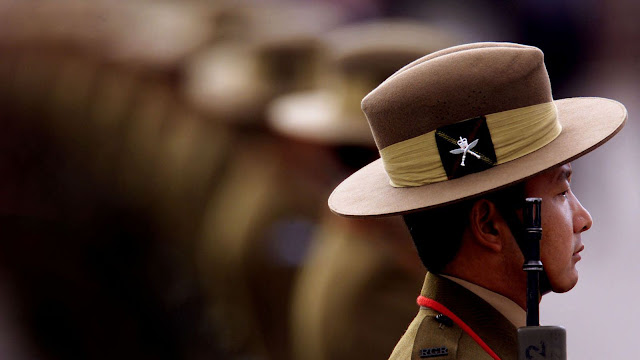
|

Although the Gorkhas found in Himachal are mostly from Nepal, there have been reports of non-Nepalese Gorkhas (such as Thai Gorkhas, Naga Gorkhas and Chinese Gorkhas). There are Gurkha military units in the Nepalese, British and the Indian army (Gorkhas) enlisted in Nepal. Although they meet many of the requirements of Article 47 [5] of Protocol I of the Geneva Conventions regarding mercenaries, they are exempt under clauses 47(e)&(f) similar to the French Foreign Legion.[6]
Gurkhas are closely associated with the khukuri, a forward-curving Nepalese knife and have a well known reputation for their fearless military prowess. The former Indian Army Chief of Staff Field Marshal Sam Manekshaw, once stated that[7] "If a man says he is not afraid of dying, he is

|
0 comments:
Post a Comment